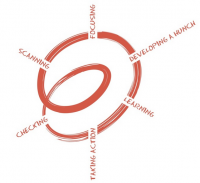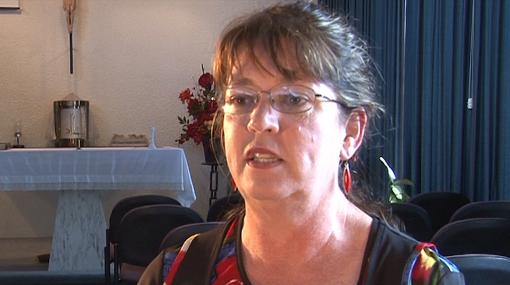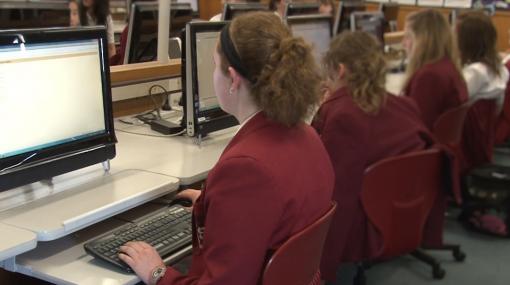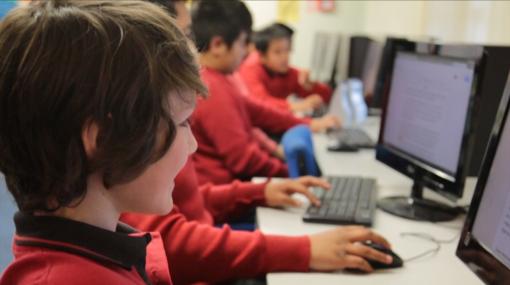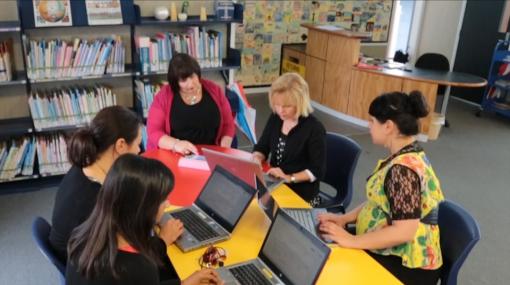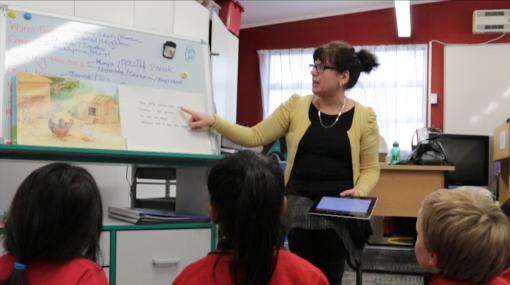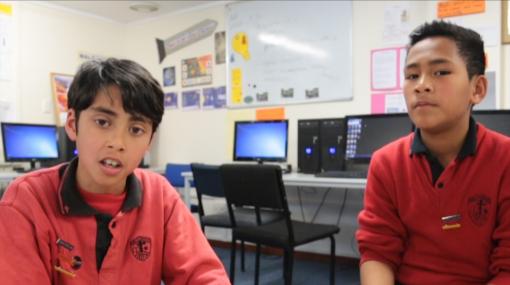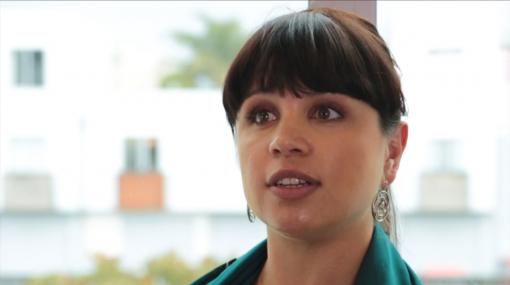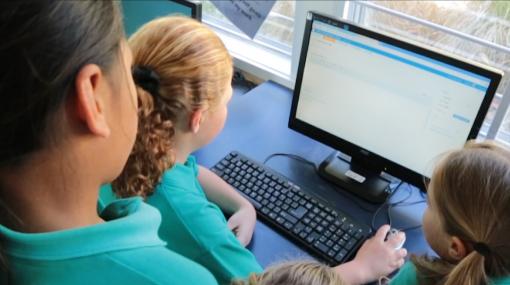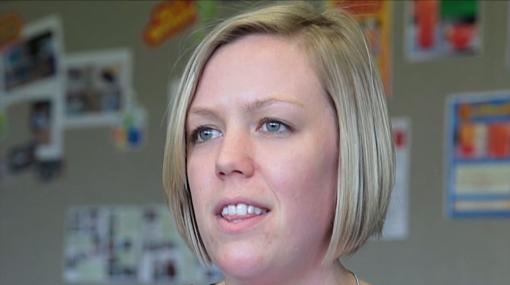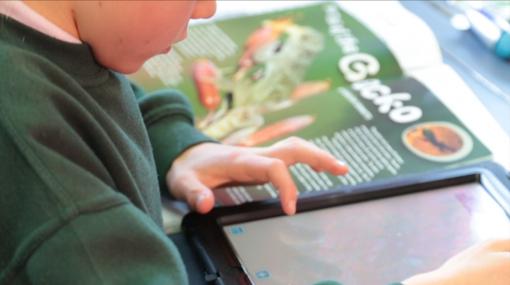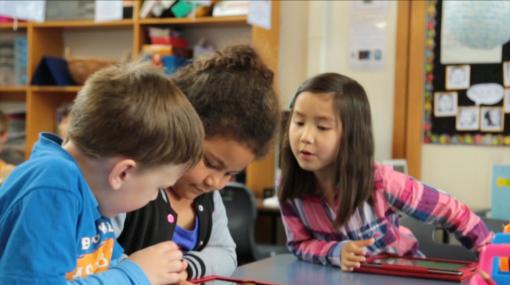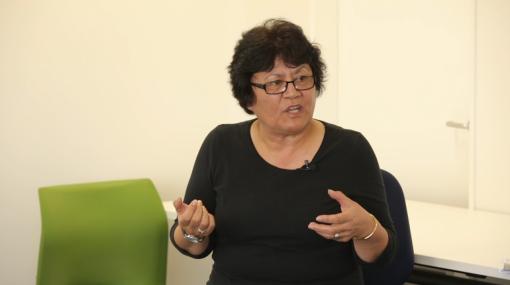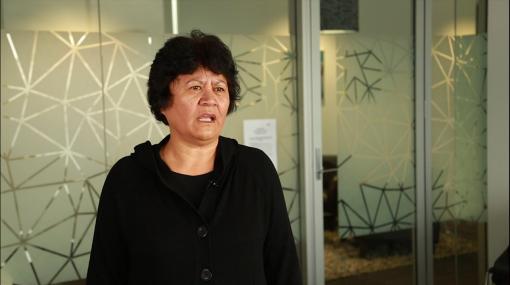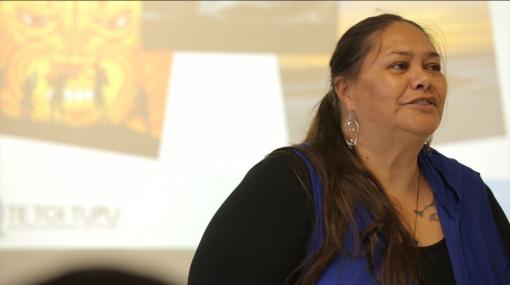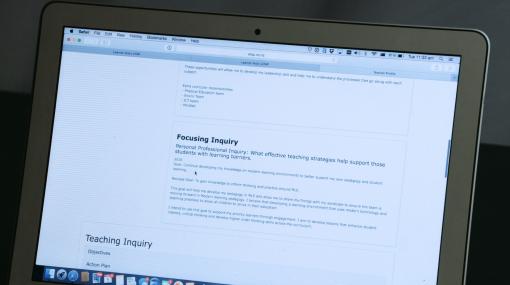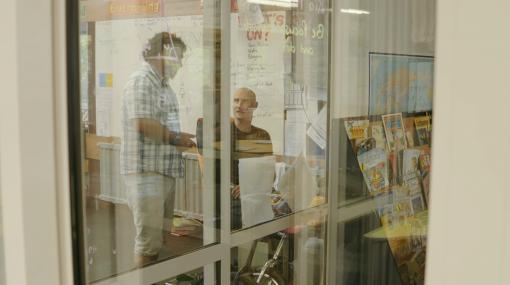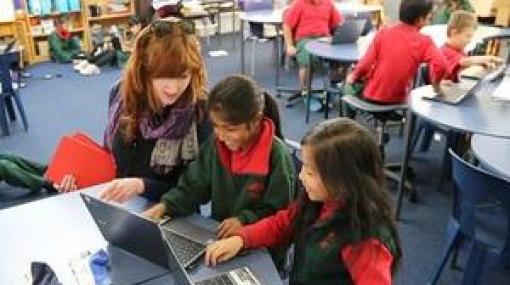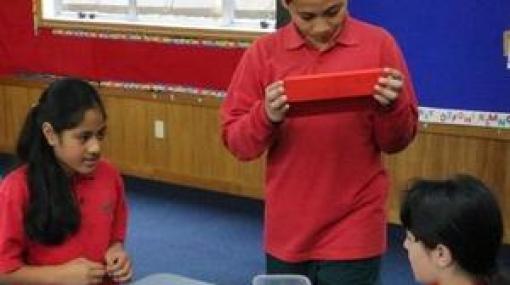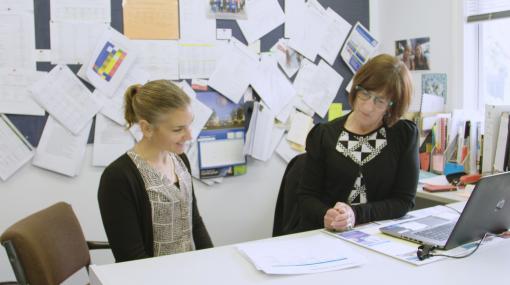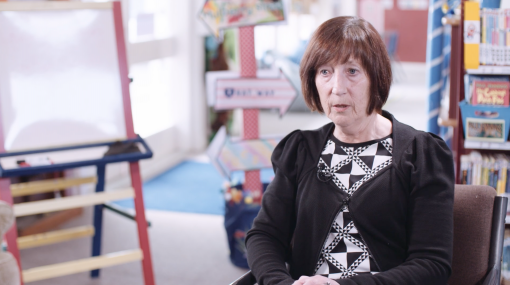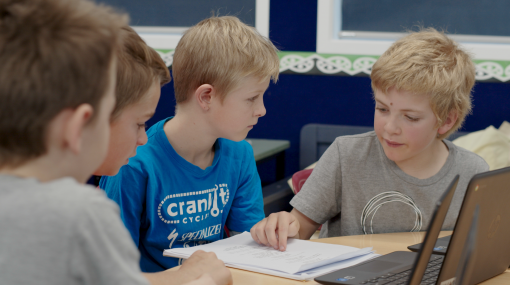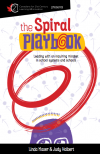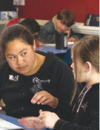Teacher inquiry
The purpose of teacher inquiry
Inquiring into teaching practice enables the identification of successful approaches to improving learning outcomes for all students. It provides an opportunity to focus on identifying successful approaches for improving learning outcomes for all learners, in particular those that may be target students.
"Since any teaching strategy works differently in different contexts for different students, effective pedagogy requires that teachers inquire into the impact of their teaching on their students."
Teacher inquiry should be based on your students' learning needs, your own learning needs, and the impact of your practice on student learning and achievement.
– Teacher professional learning and development: Best evidence synthesis iteration (BES)
The purpose of the Teaching as Inquiry cycle is to achieve improved outcomes for all students. The cycle is an organising framework that teachers can use to help them learn from their practice and build greater knowledge.
Improving learning outcomes for our Māori and Pasifika students, and those with special learning needs requires recognising the rich diversity that exists within the student population. In recognising that each student is an individual, with their own understanding of what it means to be Māori or Pasifika and of what it means to be a New Zealander, knowing your students and designing learning experiences using effective pedagogy is key. Using technologies offers new ways of learning, teaching, and engaging with students and whānau that can be used to make a difference to student learning outcomes.
More information »
- Teaching as inquiry on NZ Curriculum online.
Deputy Principal, Vicki Trainor explains why teacher inquiry was used as a method of professional development at Holy Cross School following the development of their e-learning strategic plan. Through the teacher inquiry process, they developed a better understanding of learning pedagogy. iPads are a device used to enhance teacher practice and student learning. Teachers select apps specifically for their students' needs.
Spiral of inquiry: Leaders leading learning
This resource promotes the leadership of collaborative, evidence-informed inquiry in ways that keep learners’ progress at the centre. It provides field-tested tools and ideas to support leaders and teachers to apply spirals of inquiry, learning and action with their learners.
Use the information and resources on this page to support teachers to develop collaborative inquiries. A growing body of evidence suggests that when teachers collaborate to pose and answer questions informed by data from their own students, their knowledge grows and their practice changes.
Teacher inquiry as an approach to professional learning
In this series of videos e-learning consultant Karen Melhuish Spencer describes an inquiry approach to developing effective professional learning. Used in conjunction with the e-Learning Planning Framework teachers and school leaders can develop a successful programme of professional learning and development. Inclusion and cultural responsiveness are important foundations ensuring the focus is on improving student learning outcomes.
What do we mean when we talk about professional learning in e-learning?
Quality teaching impacts on student achievement. Professional learning must be grounded in what works best for all of our akonga/learners. e-Learning professional learning is focused on using an appropriate blend of curriculum, pedagogy, and technologies. The development of digital technologies and their affordances offers opportunities for us to review what is possible in terms of content and pedagogical knowledge.
What might effective professional learning in e-learning look like?
Using technologies appropriately requires deep engagement because it is part of effective teaching and learning practice. The key components for effective professional e-learning must:
- be seen as part of a teacher's whole practice, not an add-on
- be grounded in inquiry, superficial/informal learning should complement deeper reflection
- have inclusion and cultural responsiveness as foundations.
Karen comments, "Knowing how to use an app on an iPad is very different to knowing how and why to select and integrate it into effective learning in Social Sciences."
Designing effective e-learning professional learning: Starting points for schools
The professional learning dimension in the e-Learning Planning Framework offers a way for schools to review their current provision of professional learning. The design of professional learning arises from identified needs in a school and is part of the school’s strategy for developing e-learning as part of curriculum provision. Teacher inquiry includes:
- Identifying students' e-learning needs, then asking, "What e-learning professional development do I need to help you support my students' learning?"
- Deciding how you will gather information to provide evidence of how your professional learning is impacting on your classroom practice.
- Deciding how you will evaluate the impact of e-learning on your students’ learning.
- Regularly reviewing and discussing your practice.
A key component to effective e-learning is identifying students' strengths and needs in terms of the curriculum. Learning experiences are designed using effective pedagogy, then selecting technology that will support student learning rather than choosing the technology first.
Frameworks to support teacher inquiry
When teachers participate effectively in a cycle of reflection and review, learning is linked to evidence of impact. The New Zealand Curriculum (pages 34–35) and Te Marautanga o Aotearoa (pages 13–16) describe some of the teaching approaches that research shows to have a consistently positive impact on student learning.
Teaching as inquiry
The Teaching as Inquiry cycle is an organising framework to help teachers learn from their practice and build greater knowledge.
Spiral of inquiry
Timperly, Kaser and Halbert (2014) focus on a rethink of the cycle of inquiry (2007) to the spiral of inquiry. An important difference in this new approach is involving learners, their families, and communities in inquiries.
SAMR Model
A framework through which teachers can assess and evaluate the technology used in the classroom.
Discussion starters
Use these discussion starters in conjunction with the e-Learning Planning Framework to develop teacher inquiry into how effective teaching and learning can be enhanced with and through technologies.
Principals
"How do teachers inquire into their use of e-learning?"
- Can you describe what professional learning and evidence-based practice looks like in your school?
- How, and to what extent, do teachers inquire into their use of e-learning?
- How does your school support teachers to engage in new ways of thinking and new ways of working to improve identified student outcomes?
Teachers
"What is the impact of e-learning on your students?"
- What are your students' e-learning needs? What e-learning professional development do you need to help you support your students' learning?
- What activities will be important for your e-learning professional development?
- How will you deliberately gather information so you have evidence of how your professional learning is impacting on your classroom practice?
- How will you evaluate the impact of e-learning on your students’ learning - in particular Māori, Pasifika, and students with special learning needs?
Practical steps
Principals
- As a staff and community, discuss, develop, and share your values and beliefs. Explore ways to encourage openness, inclusive networks, and partnerships as you engage in professional inquiry into e-learning.
- Select/develop resources and activities to help staff make connections between current research and their own practice.
- Create and support opportunities to build knowledge, skills, understandings, and share effective practice.
- Schedule regular opportunities for review and evaluation of e-learning interventions where data shows increased teacher effectiveness and improved student outcomes.
Principal at Konini School, Michael Malins, shares how they facilitate and keep a record of teacher inquiry.
Teachers
- Use a teaching as inquiry process to review students' needs, and set your own professional learning goals.
- Find out about current e-learning thinking, in terms of practices that make a difference to students' learning, and make links to your own practice and context.
- Undertake professional learning, both formal and informal, to enhance your understanding and skills.
- Evaluate the impact of your professional learning on all your students, particularly Māori, Pasifika, and students with special needs.
Adding an e-learning lens
Using technologies offers new ways of learning, teaching, and engaging with students and whānau that can be used to improve learning outcomes for all students.
Your inquiry should intentionally pair technology with an inclusive pedagogy and a collaborative way of working to yield a rich field of data/observations for reflection.
Identify your:
- focusing inquiry
- inquiry strategies
- inquiry tools (digital technologies)
An example of an inquiry using digital technologies
| Focusing inquiry | Inquiry strategies | Inquiry tools (digital technologies) |
| My learners are reluctant writers who tell me they have nothing to write about (ideas/words). |
|
|
Once you have decided on your inquiry question, identify which digital tool you are investigating to support student learning.
If I use [insert relevant digital tool] with [insert class level, subject, topic/focus], to what extent does it help students learn?
Anna Swann, from Holy Cross School, explains her teacher inquiry into using Google docs to enhance achievement and engagement in writing with boys. She found the barriers to the writing were removed and the boys' attitudes changed.
Key resources
Spiral of inquiry: Leaders leading learning
This resource promotes the leadership of collaborative, evidence-informed inquiry in ways that keep learners’ progress at the centre. It provides field-tested tools and ideas to support leaders and teachers to apply spirals of inquiry, learning and action with their learners.
The information and resources on this page support teachers and school leaders to develop collaborative inquiries. Information includes using technologies and creating an environment that supports collaboration.
Teacher standards and e-learning
Guiding questions, examples, and resources to support your e-learning inquiry under each standard.
Information and practical examples of how to use the SAMR model to evaluate and plan for the use of digital technologies in the classroom.
Classroom based examples describing how educators intentionally pair digital technologies with inclusive pedagogy to improve learning outcomes for students.
Videos demonstrating how teachers plan and inquire into their practice, and intentionally pair digital technologies with inclusive pedagogy to improve learning outcomes for students.
Sorry, no items found.
Video resources
Using teaching as inquiry to guide an e-learning action plan
Claire Amos is director of eLearning at Epsom Girls' Grammar. In this EDtalk, Claire talks about how the school is using a "teaching as inquiry" cycle to inform the e-learning action plans that will be implemented by professional learning groups in each of the school's curriculum areas. Claire describes the process the teachers are going through in this initiative.
Professional learning that makes a difference to students
In this video, Helen Timperley, Professor of Education at The University of Auckland, talks about professional development that makes a difference to student learning.
Effectiveness of e-learning PD
In this EDtalks video, Vince Ham discusses the complex factors that make professional development in e-learning effective including the importance of:
Why the PD is being done - it should be firmly connected to effective classroom practice
Who teachers are undertaking PD with - effective professional learning is primarily a social learning activity so it is important to consider who teachers are engaging with
What teachers are doing - PD should be more than focused on digital skills and lesson ideas
How PD is being conducted - PD should comprise a variety of activities and not be passive. The duration of effective PD is over years. PD should be frequent and often. It is most effective in small groups.
Web links
Spiral of inquiry: Leaders leading learning
This resource promotes the leadership of collaborative, evidence-informed inquiry in ways that keep learners’ progress at the centre. It provides field-tested tools and ideas to support leaders and teachers to apply spirals of inquiry, learning and action with their learners.
The spiral playbook: Leading with an inquiring mindset in school systems and schools
Researchers, Judy Halbert, and Linda Kaser provide a concise, practical introduction to using the Spirals of Inquiry, an evidence-based model of collaborative inquiry.
The teaching as inquiry cycle is explained on NZ Curriculum Online.
Teachers as learners: Improving outcomes for Māori and Pasifika students through inquiry
These learning materials illustrate how teachers have used an inquiry approach to teaching to become more culturally responsive and to improve outcomes for their Māori and Pasifika students.
Teacher standards and e-learning
Consider how you can inquire into the effect of digital technologies to support student learning, your teaching, and your professional learning.
The information and resources on this page support teachers and school leaders to develop collaborative inquiries. Information includes using technologies and creating a collaborative environment.





